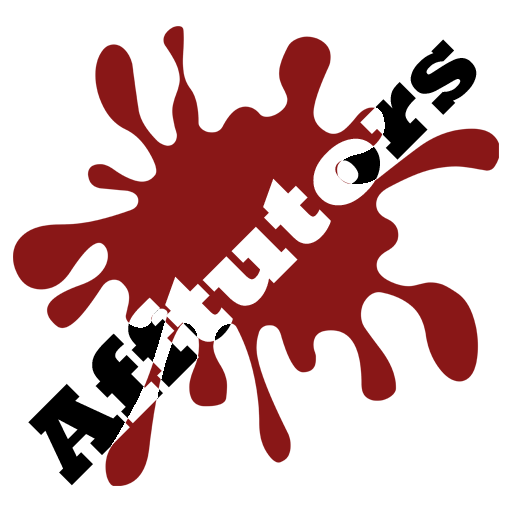Tips for Job Seekers Over 50

Finding work after the age of 50 is not easy, and job seekers over 50 face many difficulties and challenges. The older a person gets, the fewer job opportunities and fewer types of jobs they have. This article provides guidance specifically for older professionals navigating the job market, emphasizing strategies such as focusing on abilities rather than age, updating skills, and leveraging extensive networks. Key tips include simplifying your resume to highlight relevant experience, embracing lifelong learning, and marketing your unique strengths with confidence.
The article also addresses the challenges of age discrimination, encouraging older job seekers to look at their own experience.
What industries value older workers?
Here are some industries that value older workers:
1. Health care
Healthcare is one of the fastest growing and best industries for older professionals, and there are many job opportunities in this field. As the population ages and the demand for healthcare services increases, older workers with nursing or management experience may find good opportunities.
2. Education
The education sector may be an excellent choice if you have a passion for teaching and mentoring. Whether you want to become a teacher, principal or mentor, there are many opportunities to get involved in education at many different levels. Older workers with specialized experience in STEM and special education may find particular demand in this industry.
3. Government and Public Administration
Government and public administration industries value experience and tenure, making them more suitable for older professionals. Many government and public administration jobs offer excellent benefits and retirement plans, providing long-term stability.
4. Financial sector
There are many opportunities in finance for those with a background in the field, and whether you are interested in accounting, marketing or management, there are many different types of jobs available to those with specialist skills and knowledge.
5. Technology
The tech industry is constantly evolving, making it an excellent choice for older professionals who want to continue learning throughout their careers. Most tech companies value diversity and experience, which means older workers may be particularly valued in these fields. Whether you’re interested in coding, cybersecurity, or user experience design, there are plenty of job opportunities in tech for those with the right mental skills.

6. Entrepreneurship
Entrepreneurship can be a good option if you are interested in being your own boss. Most successful startups are founded by older professionals with years of experience in their field who are looking to get their own start. Although starting a business comes with its own set of challenges, entrepreneurship can be a rewarding career option for those who have the drive and determination to succeed.
What are the most valuable skills in technology for older workers?
Here are the most valuable skills for older workers who aspire to work in technology:
1. Transferable skills
The ever-changing nature of technology requires continuous learning , adaptability, and lifelong learning, as older workers have demonstrated by adapting to career changes, transitioning from military to civilian, and learning specialized skills.
2. Communication and interpersonal skills
Older workers have developed strong abilities in collaboration, leadership and teamwork through military service, volunteer work and community involvement, which are critical in technical roles that interface across departments and with customers.
3. Problem Solving and Critical Thinking
The non-tech experience requires quick thinking to troubleshoot equipment, manage finances, and navigate complex social dynamics, which directly applies to fast-paced, innovative tech environments.
4. Leadership and volunteer work
Leadership, volunteering, club collaboration, event planning, and advocacy require the leadership skills needed to inspire people and organize projects in the tech world.
5. Entry-level technical jobs such as help desk technical support
These roles assist users in troubleshooting software, hardware, and technical systems, with training provided by companies.

6. Data entry
Detail-oriented workers with basic computer knowledge can find an easy path into technology, and data entry jobs include industries such as finance, medicine, government, and retail.
How can older workers overcome the myth of being less tech-savvy?
Older workers can overcome the myth of being less tech-savvy through several strategies:
1. Continuous learning
Participating in online training programs and courses helps older workers stay up to date with the latest technologies.
2. Benefit from experience
Having extensive work experience can help you adapt quickly to new technology tools, and older workers often have better problem-solving and decision-making skills.
3. Communication
Building relationships with technology-minded peers provides support and knowledge sharing, which enhances their technology skills.
4. Challenge stereotypes
Demonstrating technical proficiency in the workplace counteracts age biases and shows that older workers are just as capable as their younger colleagues.
How do online courses help older workers stay competitive in the job market?
Online courses greatly help older workers stay competitive in the job market in a variety of ways, including:
1. Skills development
Many older workers are taking online courses to gain new skills, especially in technology, communications and professional development, which are essential in today’s workforce.
2. Flexibility
Online learning provides the flexibility for seniors to balance personal commitments and enhance their qualifications.
3. Adapting to technology
Courses in emerging fields, such as artificial intelligence and data analytics, help older workers stay relevant to rapid technological developments.
4. Building trust
Success stories show how online training builds confidence, enabling older workers to effectively face new challenges and roles.
5. Networking opportunities
Online platforms facilitate networking with peers and industry professionals, which enhances job and mentorship opportunities.
6. Employer support
Most employers encourage skills development through online training and recognize its importance in building a skilled workforce.
How do online learning platforms support older workers in retraining?
Online learning platforms support older workers in their reskilling through the following key mechanisms:
1. Flexibility and accessibility
Older workers can learn at a pace and schedule that works for them, while taking into account personal commitments, and enhancing their skills.

2. Develop targeted skills
Platforms like Coursera offer recognized certifications in IT and other fields, allowing older workers to gain skills relevant to today’s job market.
3. Blended learning approaches
Integrating hands-on learning and experiences helps older learners adapt to digital environments, making learning more effective.
4. Effectiveness at lower cost
E-learning significantly reduces training costs compared to traditional methods, allowing organizations to invest in employee development.
5. Culture of continuous learning
A focus on lifelong learning ensures that older workers remain competitive and able to adapt to technological changes in the workplace.
Tips for Job Seekers Over 50
Job seekers over the age of 50 can benefit from the following tips to boost their job search:
1. Accept your age
Highlight your extensive experience and the value you bring, especially in industries like healthcare and consulting that value maturity.
2. Customize your resume
Focus on the last 10 to 15 years of experience, using relevant keywords from advertised jobs, and avoid including dates or unnecessary details that might give away your age.
3. Update your skills
Stay up to date with the latest technology and industry trends, and take online courses to update your IT skills.
4. Communicate effectively
Use platforms like LinkedIn to connect with professionals in your field and showcase your skills.
5. Market yourself
Define your personal brand, and clearly explain your professional goals and achievements.
6. Stay positive and resilient.
Finding a job can be difficult, so stay proactive and adapt to changes in the job market.
in conclusion
The article “Tips for Job Seekers Over 50” emphasizes the importance of leveraging experience and adaptability in the job market, and includes key strategies such as focusing on relevant skills, updating your resume to highlight accomplishments rather than dates, and accepting age as an asset. Job seekers should also stay informed about industry trends and consider roles that value their maturity.
Networking is important, as is the desire to pursue new opportunities and learn new skills, and the article encourages job seekers over 50 to market themselves effectively and not to underestimate their value.




